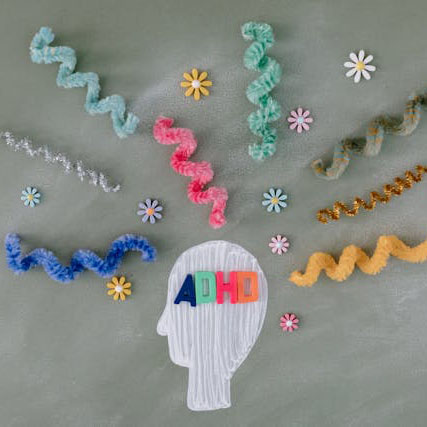
Does Adderall Help ADHD?
Adderall can be an effective treatment for managing attention deficit hyperactivity disorder (ADHD). It’s important to understand the appropriate dosing and administration, as well as the significance of monitoring its use to limit side effects and ensure its effectiveness. Adderall has some long-term benefits, but also common and rare side effects, and there is a risk of dependency and abuse. Remember, Adderall is a prescription medication, so consulting with your doctor is necessary for treatment. You may have the option to arrange a telehealth appointment or have the doctor visit your home.
Beat Addiction from Home with Elite Home Detox
Personalized Withdrawal Support for a Lasting Recovery. Our experts come to you. Contact us to start your journey today.
Table of Contents:
Attention deficit hyperactivity disorder (ADHD) is a chronic condition that begins in childhood and usually persists into adulthood. It causes symptoms such as hyperactivity, inattention, and, in some cases, impulsive behavior. ADHD can be managed with a variety of techniques, such as counseling, therapy, and medications such as Adderall.
How Adderall Helps With ADHD
Adderall can help manage ADHD because it increases dopamine and norepinephrine in your brain. The increased neurotransmitter activity caused by Adderall may help increase attentiveness and limit impulsivity. Reducing ADHD symptoms can greatly improve productivity and quality of life.
Adderall is a stimulant medication that has a high risk of dependency and misuse because it contains amphetamine and dextroamphetamine, so it is vital that you understand the proper dosage and administration and take this medication exactly as your doctor prescribes.
This medication is available as immediate-release tablets (known as Adderall) or extended-release capsules (known as Adderall XR). Determining the dose that is right for you depends on your age, the severity of your ADHD symptoms, and which form of Adderall you take.

Adderall
Children 6 to 17 and adults 18 and older who take immediate-release Adderall for ADHD are usually prescribed a starting dosage of 5 milligrams (mg) once or twice each day. Children 3 to 5 who take immediate-release Adderall for ADHD are usually prescribed a starting dosage of 2.5 mg once or twice each day.
Adderall XR
Adults 18 and older who take extended-release Adderall XR for ADHD are usually prescribed a starting dosage of 20 mg once daily. Children 13 to 17 who take extended-release Adderall XR for ADHD are usually prescribed a starting dosage of 10 mg once daily. Children 6 to 12 who take extended-release Adderall XR for ADHD are usually prescribed a starting dosage of 5 mg or 10 mg once daily.
Adderall and Adderall XR dosages can be adjusted each week if needed. You or your child should take the first dose each day right after waking up and take any additional doses four to six hours apart.
When you or your child start taking Adderall or Adderall XR, you will need to work closely with the doctor to make sure there are no serious side effects and whether the medication is working properly. It may take a while to figure out which minimum dose is most effective for you.
Adderall and Adderall XR work best for long-term use when you do not skip any doses because this helps these medications stay at an effective level in your body for managing ADHD symptoms. If taken as prescribed, you are not likely to develop a tolerance for Adderall or Adderall XR or need higher doses.
Potential Side Effects of Taking Adderall For ADHD
As with any medication, Adderall comes with the potential of certain side effects. It is also possible to develop a dependency on this medication if taken too often or in higher doses than prescribed.
Common side effects of Adderall include:
- Weight loss
- Trouble sleeping
- Stomach pain
- Nausea
- Lack of appetite
- Headache
- Dry mouth
- Dizziness
- Constipation
- Anxiety
Symptoms of serotonin syndrome:
Rare reactions that Adderall can cause include serotonin syndrome/toxicity or a very severe allergic reaction. You are more likely to develop serotonin syndrome if you also take other medications that increase serotonin levels. Be sure to tell your doctor about all of the prescription and over-the-counter medications and supplements you take.
Symptoms of serotonin syndrome that require immediate treatment include:
- Fast heartbeat
- Hallucinations
- Loss of coordination
- Severe diarrhea
- Severe dizziness
- Severe nausea
- Severe vomiting
- Twitching muscles
- Unexplained fever
- Unusual agitation
- Unusual restlessness
Symptoms of a very severe allergic reaction:
Symptoms of a very severe allergic reaction to Adderall that require immediate treatment include:
- Itching, especially your face, throat, and/or tongue
- Rash
- Severe dizziness
- Swelling, especially your face, throat, and/or tongue
- Trouble breathing
Risk of Dependency and Abuse
The United States Food and Drug Administration (FDA) has added a warning to Adderall packaging to make people more aware of the high risk of dependency and abuse that can occur if this medication is taken in incorrect doses. This risk is due to the active ingredients in Adderall, which are the stimulants amphetamine and dextroamphetamine. You are more likely to experience dependency if you have a personal or family history of alcohol or drug abuse problems.
Taking more than the recommended dose of Adderall or using it without a prescription is considered drug abuse. Dependency occurs when you start to need Adderall to function properly.
Additionally, in an effort to minimize cases of Adderall abuse and dependency, the United States Drug Enforcement Administration (DEA) restricts how much pharmaceutical companies can produce Adderall, and it is illegal to buy or use this medication without a valid prescription. However, this does not stop illegal use completely.
It is possible to misuse Adderall even if you have a legitimate prescription. Abusing this medication increases your risk of developing severe side effects. Overdose can be fatal.
If you are dependent on Adderall, help is available. Talk to your doctor about treatment options and alternative medications you can use instead of Adderall for ADHD. For example, Ritalin is another ADHD medication that is similar to Adderall and is also available as an immediate-release or extended-release (Ritalin LA) tablet. However, Ritalin and Ritalin LA have a lower risk of abuse and dependency because they contain methylphenidate instead of amphetamine or dextroamphetamine.
Last Words
ADHD is a condition that typically presents itself in children, and many kids who have ADHD will continue to have ADHD as adults. Having ADHD makes it hard to focus, stay calm, and regulate impulsive behavior. These issues can be detrimental to development and overall well-being if they are not managed properly.
Adderall is a prescription medication that stimulates dopamine and norepinephrine and reduces ADHD symptoms in adults and children. Most side effects caused by Adderall are mild and will go away on their own with time, but you should seek immediate treatment if you show signs of rare but very serious side effects like serotonin syndrome/toxicity or a severe allergic reaction.
Adderall has a high risk of dependency and abuse, but there is treatment available for these issues, and following your doctor’s directions can help you avoid them altogether. Schedule a telehealth appointment or a house call to talk to your doctor to determine if Adderall is the right choice to treat your ADHD.
EHD Can Help You Through The Withdrawal Process
Elite Home Detox is here for you if you need help withdrawing from Adderall or any other addictive drug. We can provide you with the one-on-one care you need while going through detoxification and withdrawal symptoms caused by addiction. And best of all, we come to you! You can make a full and lasting recovery in the comfort of your home with the help of our expert medical team. Contact us today to learn more.


